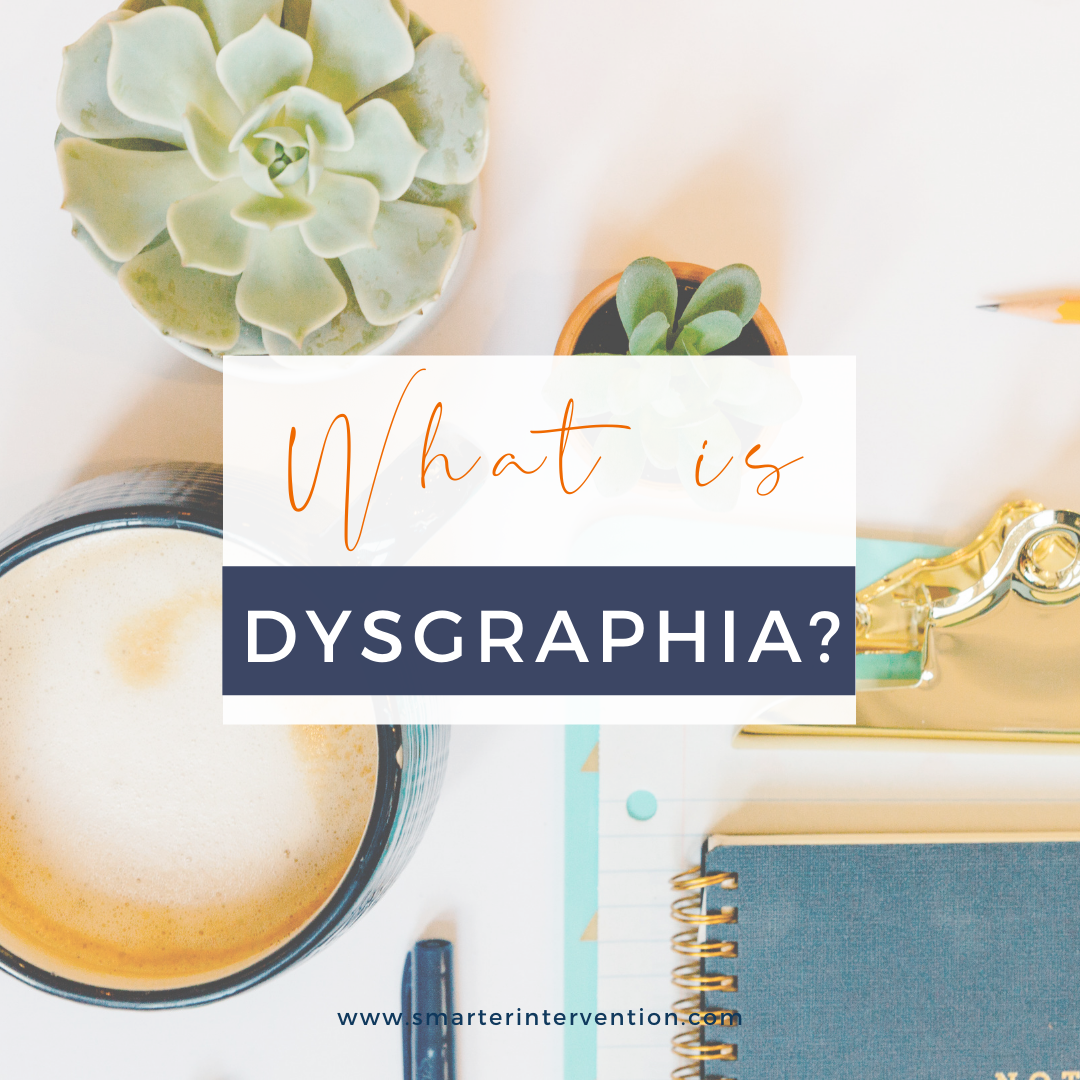Science-based literacy resources and articles
for families, educators and schools
Search by Category:
Categories
- Advocacy
- Authentic Literature
- Business
- Comprehension
- Data Tracking
- Differentiation
- Dyslexia
- Evaluation and Assessment
- Executive Functioning
- Games & Activities
- Helping My Child At Home
- How To
- IEP/504 Plan
- Lesson Planning
- Math
- Online Intervention
- Organization
- Parents
- Phonics
- Phonological Awareness
- Reading Comprehension
- Reading Fluency
- Research
- SLP
- Spelling
- Vocabulary
- Writing
What is Dysgraphia?
Dysgraphia is another term that is used synonymously with Disorder of Written Expression.
Basically, it can be used to describe a student or adult who struggles producing written content for a number of specific reasons.
When we consider dysgraphia, we have to think about all the requirements of writing. Writing is an incredibly complex task that requires multiple connections in the brain to come together quickly.
Dyslexia Symptoms Checklist
Happy Friday, Everyone! We absolutely can not believe that October is already over. Holy moly! With October coming to a close, that means we are also finishing up with Dyslexia Awareness month. Our team was lucky enough to get to travel to the International Dyslexia Association’s National Conference last week - which was AMAZING.
Suspect Dyslexia? The Time to Talk to Parents is Now!
Prepare your students for summer with strategies to combat the dreaded "summer slide" and prevent learning loss. Learn how to identify signs of dyslexia and guide families toward appropriate testing and intervention to ensure a successful new school year.
Is it dyslexia or a vision issue?
Dyslexia is a brain-based learning difference. It is a language processing disorder and not a vision or eye problem. In contrast to dyslexia specialists and most pediatricians, some optometrists may try to convince you that your child’s reading difficulties are due to vision problems and may recommend vision therapy or glasses. Some well-intentioned (but misinformed) therapists or teachers may even suggest colored overlays to “fix” the problem.
Signs to Watch For if You are Concerned about Dyslexia
In this blog, we outline the signs and symptoms of dyslexia for students ranging in age from preschool, kindergarten, first grade, and second grade and above. We want to spread dyslexia awareness and help both parents and teachers catch these signs of dyslexia early so that you can get answers for your struggling readers. Click through to read more, and grab our free dyslexia symptoms checklist.






